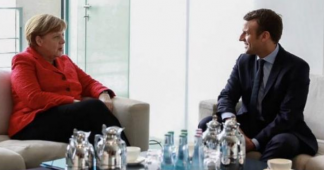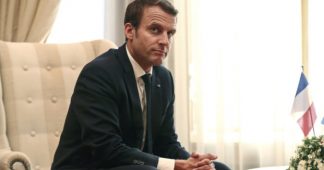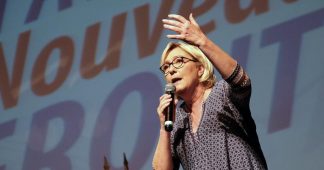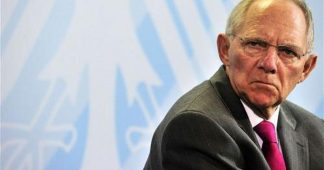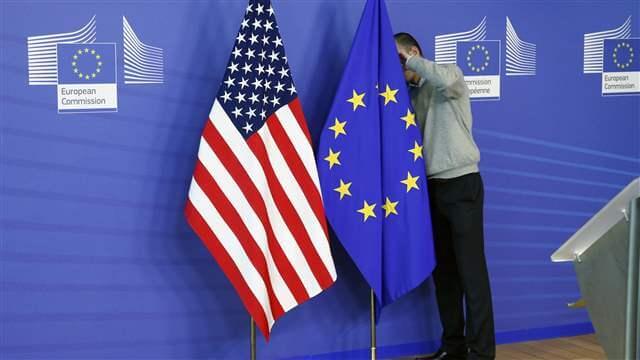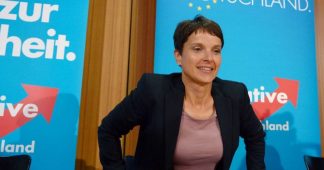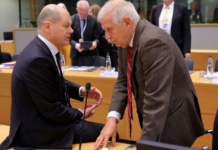1/9/2017
French President Emmanuel Macron’s push for an ambitious overhaul of Europe’s single currency bloc is running up against robust resistance in Berlin despite conciliatory public signals from German Chancellor Angela Merkel.
Nearly four months into Macron’s presidency, senior German officials say they are still waiting for ideas from Paris that might bridge the gap between France’s push for more eurozone burden-sharing and Germany’s insistence that member states take primary responsibility for their own economic problems.
Although the true test for a Franco-German “grand bargain” on deeper eurozone integration will come after the German election on 24 September, early exchanges between technocrats in the two capitals have yielded little to no progress, according to people involved.
“There is a new elan with Macron. But so far the ideas are the same ones that we’ve been hearing from Paris for years,” said one senior German official.
“We have not advanced at all,” said another top official. “It is hard to see where the middle ground lies.”
Reflecting the differences between the two sides, French government spokesman Christophe Castaner warned “half-baked proposals” on reforming the eurozone would put Europe in danger.
“We have to find the balancing point in our bilateral exchanges,” Castaner said after a ministerial meeting involving German Foreign Minister Sigmar Gabriel in Paris on Wednesday (30 August).
Deep flaws
Europe’s common currency area is emerging from the economic and financial crisis that began nearly a decade ago and almost tore it apart.
But the turmoil of past years exposed deep flaws in Europe’s architecture, and with an array of new challenges emerging – from Brexit to US President Donald Trump – people are watching closely to see if France and Germany, the historic drivers of European integration, can revive their troubled partnership and restore confidence in the bloc.
During his campaign for the Elysée, Macron called for a big leap forward in European cooperation towards a so-called fiscal union. He is pushing for the creation of a eurozone finance minister and parliament, as well as a stand-alone budget for the currency bloc to cushion economic shocks in individual member states and head off future crises.
In an interview with French weekly Le Point on Wednesday (30 August), he offered the first clues about what such a budget might look like, suggesting it could be funded by tax revenues that currently go into national budgets and total several hundred billions of euros.
Merkel, while voicing support for Macron’s budget idea, ruled out sums that large earlier this week, speaking of “small contributions”.
Tight window
Both the German and French sides say it will be important to have a rough plan for eurozone reform in place before German coalition talks begin in earnest, most likely in the second half of October.
That way, reform ideas can be embedded in the German coalition agreement, a detailed policy blueprint for the new government that can run over 200 pages.
One path, if Merkel emerges victorious as polls suggest, would be for Berlin and Paris to hold a bilateral summit on eurozone reform in early October and then present initial ideas to European partners at an EU summit scheduled for 19-20 October.
The window for clinching an agreement involving all 19 members of the currency bloc is tight. German officials believe it must be completed in the first half of 2018, before the EU enters crunch time in its Brexit negotiations with Britain and begins thorny talks on a long-term budget for the EU.
“If we don’t manage to come up with something in the first half of 2018 it will get messy,” the second official said.
European Monetary Fund
The most concrete proposal on the table right now comes from German Finance Minister Wolfgang Schäuble.
He has floated the idea of transforming the eurozone’s rescue fund, the European Stability Mechanism (ESM), into a fully fledged European Monetary Fund (EMF) that would have more powers to support vulnerable member states.
Backed by Merkel, this proposal is viewed with suspicion by some members of Macron’s entourage, who see it as a plot by Berlin to undermine his more ambitious budget vision.
They point out that the ESM is run by a German, Klaus Regling, is an intergovernmental body in which the Germans have a de facto veto, and that Schäuble’s plan would weaken the European Commission by stripping away its budget oversight responsibilities.
Back in May, two economists who have worked with Macron in the past, Laurence Boone and Shahin Vallee, dismissed the EMF idea as a “dead end”.
Limited appetite
Four months on however, with no obvious compromise in sight, Schäuble’s idea is looking like a more realistic solution, even if it does fall short of what Macron has promised.
“We are not among those who think it’s absurd,” said one person close to Macron, describing it as a possible “first step” in a progressive strengthening of the eurozone. “What is interesting about it is that it could be put in place fairly quickly.”
In Berlin, the appetite for making big concessions to Macron seems limited.
An economic rebound in the euro area has reduced the sense of urgency. And German officials say other challenges – from protecting the EU’s external borders to forging a common approach on refugees – are at least as important as reforming the eurozone.
While keen to see Macron succeed, they believe his political fate will ultimately hinge on his ability to push through domestic reforms to reduce unemployment and stimulate the French economy, not an overhaul of the eurozone.
People in Merkel’s party are also aware that her room for manoeuvre could become more limited after the election if she ends up switching coalition partners, dumping the Macron-friendly Social Democrats (SPD) in favour of the more critical Free Democrats (FDP).
